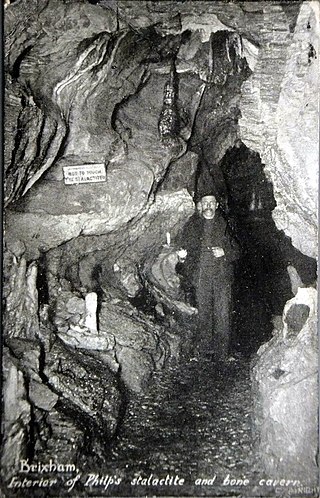
Flint, occasionally flintstone, is a sedimentary cryptocrystalline form of the mineral quartz, categorized as the variety of chert that occurs in chalk or marly limestone. Flint was widely used historically to make stone tools and start fires.

Flint is the largest city and seat of Genesee County, Michigan, United States. Located along the Flint River, 66 miles (106 km) northwest of Detroit, it is a principal city within the region known as Mid Michigan. At the 2020 census, Flint had a population of 81,252, making it the twelfth largest city in Michigan. The Flint metropolitan area is located entirely within Genesee County. It is the fourth largest metropolitan area in Michigan with a population of 406,892 in 2020. The city was incorporated in 1855.

Genesee County is a county in the U.S. state of Michigan. As of the 2020 Census, the population was 406,211, making it the fifth-most populous county in Michigan. The county seat and population center is Flint. Genesee County is considered to be a part of the greater Mid Michigan area.

The Chiltern Hills, a chalk escarpment in England northwest of London, covers 660 square miles (1,700 km2) across Oxfordshire, Buckinghamshire, Hertfordshire, and Bedfordshire, stretching 45 miles (72 km) from Goring-on-Thames in the southwest to Hitchin in the northeast. The hills are 12 miles (19 km) at their widest.

The Rothschild family owned multiple estates in the home counties, particularly the Buckinghamshire area.

The North Downs are a ridge of chalk hills in south east England that stretch from Farnham in Surrey to the White Cliffs of Dover in Kent. Much of the North Downs comprises two Areas of Outstanding Natural Beauty (AONBs): the Surrey Hills and the Kent Downs. The North Downs Way National Trail runs along the North Downs from Farnham to Dover.

The Flint River is a 344-mile-long (554 km) river in the U.S. state of Georgia. The river drains 8,460 square miles (21,900 km2) of western Georgia, flowing south from the upper Piedmont region south of Atlanta to the wetlands of the Gulf Coastal Plain in the southwestern corner of the state. Along with the Apalachicola and the Chattahoochee rivers, it forms part of the ACF basin. In its upper course through the red hills of the Piedmont, it is considered especially scenic, flowing unimpeded for over 200 miles (320 km). Historically, it was also called the Thronateeska River.
Combe Hill is a causewayed enclosure, near Eastbourne in East Sussex, on the northern edge of the South Downs. It consists of an inner circuit of ditches and banks, incomplete where it meets a steep slope on its north side, and the remains of an outer circuit. Causewayed enclosures were built in England from shortly before 3700 BC until at least 3500 BC; they are characterized by the full or partial enclosure of an area with ditches that are interrupted by gaps, or causeways. Their purpose is not known; they may have been settlements, meeting places, or ritual sites. The historian Hadrian Allcroft included the site in his 1908 book Earthwork of England, and in 1930 E. Cecil Curwen listed it as a possible Neolithic site in a paper which attempted to provide the first list of all the causewayed enclosures in England.

The Flint Hills, historically known as Bluestem Pastures or Blue Stem Hills, are a region in eastern Kansas and north-central Oklahoma named for the abundant residual flint eroded from the bedrock that lies near or at the surface. It consists of a band of hills stretching from Kansas to Oklahoma, extending from Marshall and Washington Counties in the north to Cowley County, Kansas and Kay and Osage Counties in Oklahoma in the south, to Geary and Shawnee Counties west to east. Oklahomans generally refer to the same geologic formation as the Osage Hills or "the Osage."

Cissbury Ring is an 84.2-hectare (208-acre) biological Site of Special Scientific Interest north of Worthing in West Sussex. It is owned by the National Trust and is designated a Scheduled monument for its Neolithic flint mine and Iron Age hillfort.

Dennis Eugene Scott Jr. is an American former professional basketball player. A 6 ft 8 in (2.03 m) small forward from Georgia Tech, and the 1990 ACC Men's Basketball Player of the Year, Scott was selected by the Orlando Magic with the fourth pick of the 1990 NBA draft after being the leading scorer on a Yellow Jackets team that made the Final Four, and comprising one portion of Georgia Tech's "Lethal Weapon 3" attack featuring Scott, Kenny Anderson and Brian Oliver.
The Buick Open was a PGA Tour golf tournament from 1958 to 2009. In 2007, the tournament was held at the end of June, a change from its traditional spot between The Open Championship and the PGA Championship. Regardless, many prominent players used it as a "tune-up" for the subsequent major.

Flint Hill School, founded in 1956, is a private, co-educational, college preparatory school, in Oakton, Virginia, serving grades JK–12. The school has separate upper and lower school campuses about a mile apart in Fairfax County, approximately 20 miles (32 km) from Washington, D.C.

The Osage Plains are a physiographic section of the larger Central Lowland province, which in turn is part of the larger Interior Plains physiographic division. The area is sometimes called the Lower Plains, North Central Plains,or Rolling Plains. The Osage Plains, covering west-central Missouri, the southeastern third of Kansas, most of central Oklahoma, and extending into north-central Texas, is the southernmost of three tallgrass prairie physiographic areas. It grades into savanna and woodland to the east and south, and into shorter, mixed-grass prairie to the west. The Osage Plains consist of three subregions. The Osage Plains proper occupy the northeast segment. Although sharply demarcated from the Ozark uplift, the plains are nonetheless a transitional area across which the boundary between prairie and woodland has shifted over time. In the central portion of the physiographic area lies the second subregion, the Flint Hills, commonly called "the Osage" in Oklahoma. This large remnant core of native tallgrass prairie is a rocky rolling terrain that runs from north to south across Kansas and extends into Oklahoma. To the west and south of these hills are the Blackland Prairies and Cross Timbers. This vegetatively complex region of intermixed prairie and scrubby juniper-mesquite woodland extends into north-central Texas. Bluestem prairies and oak-dominated savannas and woodlands characterize the natural vegetation in the Cross Timbers. Much of the area has been converted to agriculture, although expanses of oak forest and woodland are still scattered throughout the eastern portion of the subregion.

Flint Hill is a census-designated place (CDP) in Rappahannock County, Virginia, United States. The population as of the 2010 Census was 209. It is located on Route 522, approximately 2 miles to the east of the border of the Shenandoah National Park.

WTRX is an American radio station broadcasting a sports format in Flint, Michigan. It is the Flint affiliate for Michigan Wolverines football and men's basketball, and CBS Sports Radio. Its studios are located in Mundy Township near U.S. 23 and Hill Rd. and its transmitter is in Burton near Dort Hwy. and Bristol Rd.
Austin B. Witherbee was a Michigan politician.
Flint Hill, Pittsylvania County is an unincorporated community in Pittsylvania County, in the U.S. state of Virginia.

Windmill Hill Cavern is a limestone cave system in the town of Brixham, Devon. It was discovered in 1858 and later excavated by a team led by the geologist William Pengelly, who found proof that humans co-existed with extinct British fauna.

Northern Diamonds are a women's cricket team that represent the traditional areas of the North East and Yorkshire, one of eight regional hubs in English domestic women's cricket. They play their home matches at Headingley, the Riverside, Roseworth Terrace and North Marine Road. They are captained by Hollie Armitage and coached by former England cricketer Danielle Hazell.


















